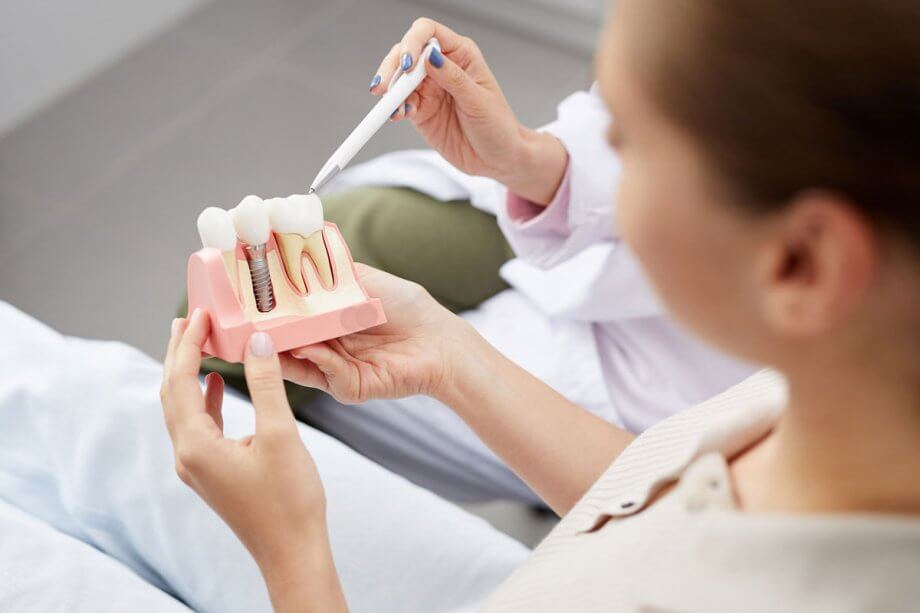For decades, the standard replacement for a single missing tooth was a dental bridge. This has changed with the increasing popularity of dental implants. Now, there is an option that doesn’t just replace a missing tooth above the gum line, but also below: the single-tooth dental implant.
What is a single-tooth dental implant?
A single-tooth dental implant is a restoration that pairs a dental implant and a crown. There are three separate pieces: the dental implant, which replaces the root of your tooth, a dental crown, and an abutment, which connects the two.
We use single-tooth dental implants to replace an individual missing tooth, or more than one missing teeth that are not adjacent to each other. When you have a few teeth in a row that are missing, we use an implant-supported bridge to replace them, while an entire arch of teeth can be replaced with an implant-supported denture.
Am I a candidate for a dental implant and crown?
During your consultation with Dr. Steel, he will determine whether you’re a candidate for a dental implant and crown. You should be in good overall health, with adequate bone mass in the jaw to support an implant, and no signs of active gum disease. Dr. Steel will examine your teeth, jaw, and gums, go over your medical and dental histories, and take x-rays to evaluate the health of your jawbone.
If your tooth has been missing for some time, it’s possible that you may have experienced bone loss in the jaw. If this is the case, it doesn’t rule out implant surgery—it just means that you will likely need bone grafting or a sinus lift to augment the jawbone before getting a dental implant and crown. These procedures will set you up for success with your single-tooth dental implant.
What are the advantages of dental implants?
Dental implants are the preferred solution for missing teeth since they replace the root and the visible portion of the tooth. There’s no other option that accomplishes this and it means that dental implants look, feel, and function the most like natural teeth. They prevent bone loss in the jaw, which compromises your oral health, weakens your bite, and can even cause a prematurely aged appearance.
When comparing dental implants and bridges, an advantage of implants is that they don’t require support from adjacent teeth like bridges do. When a bridge is supported by surrounding teeth, it leaves these teeth susceptible to decay and fracture, but dental implants are self-supporting. Single-tooth dental implants can be expected to last longer than a traditional dental bridge—in fact, the dental implant itself should last a lifetime, although you may need to replace the crown that attaches to it at some point.
Learn More About the Dental Implant and Crown Combination
Is a single-tooth dental implant right for you? If you’d like to learn more about this restoration, contact us today at 505-821-2111 to schedule a consultation with Dr. Steel at Rio Grande Oral Surgery and Dental Implant Center.

